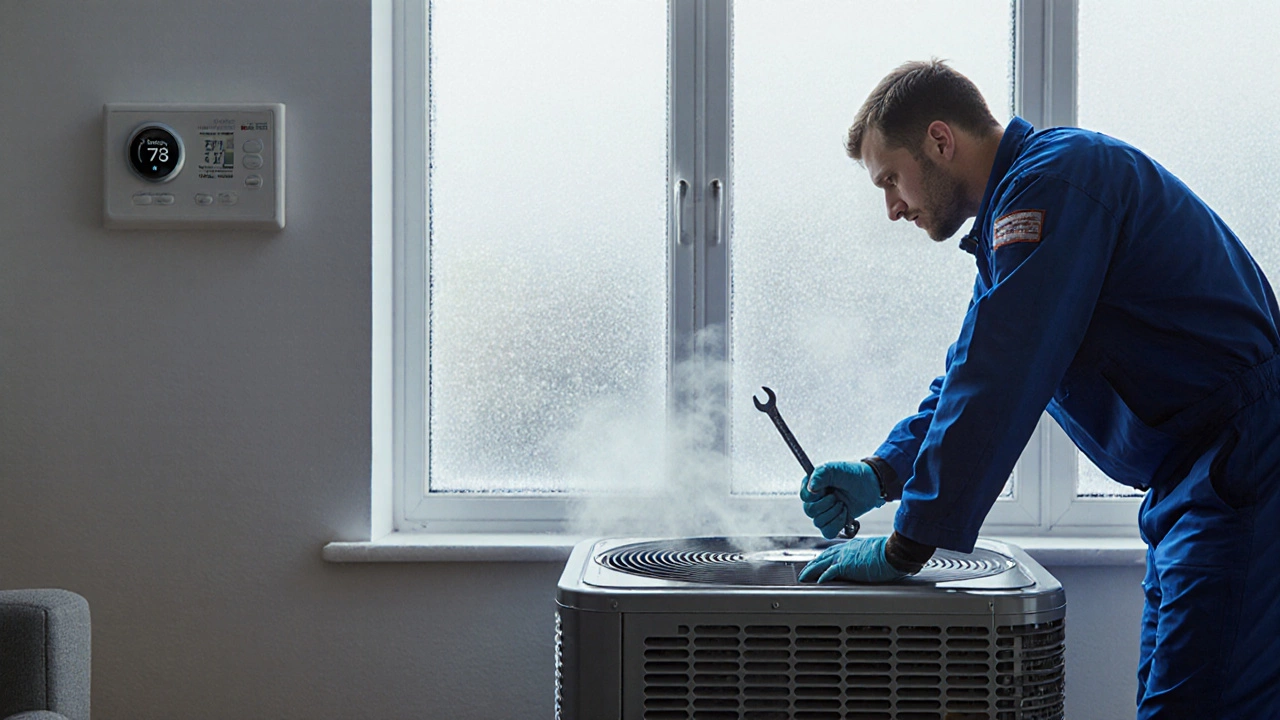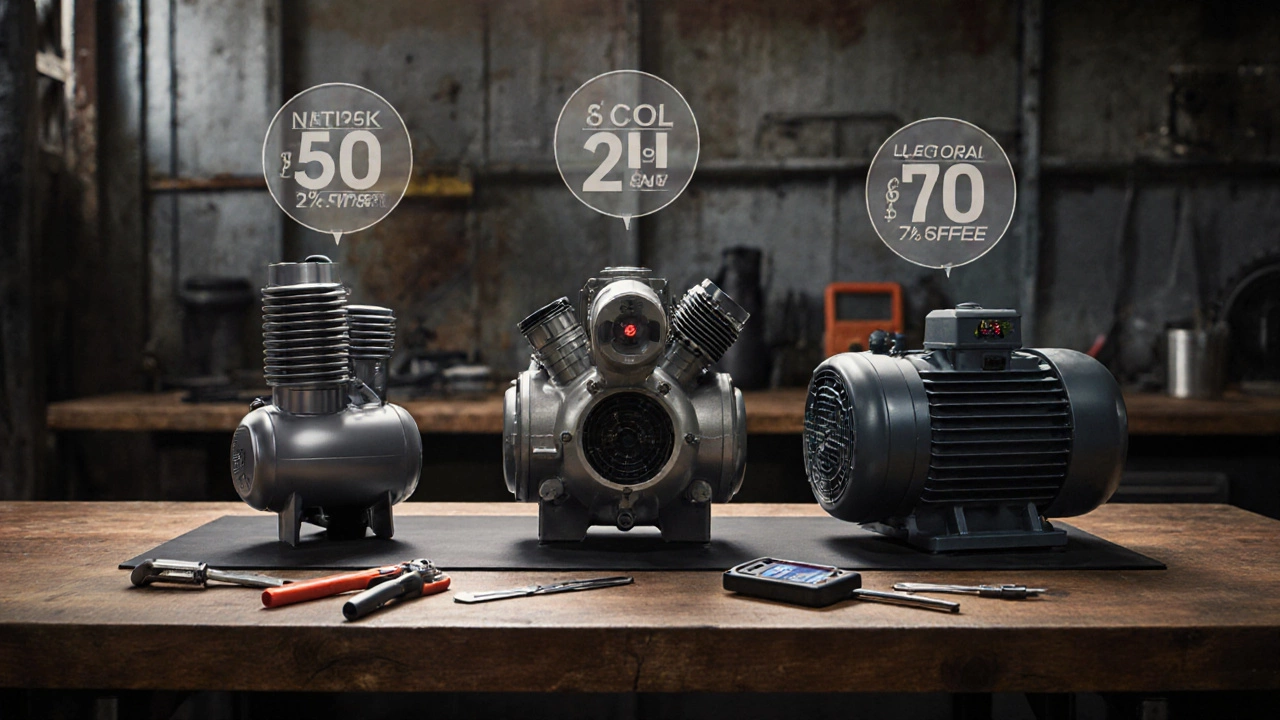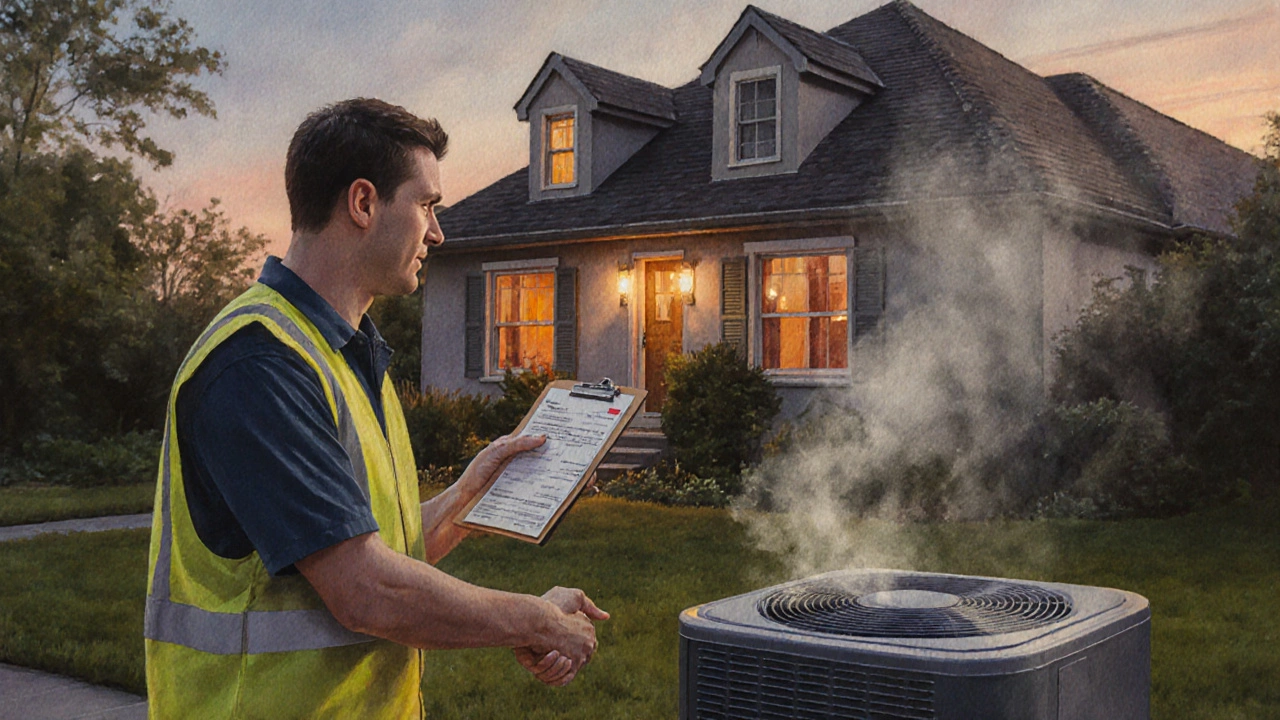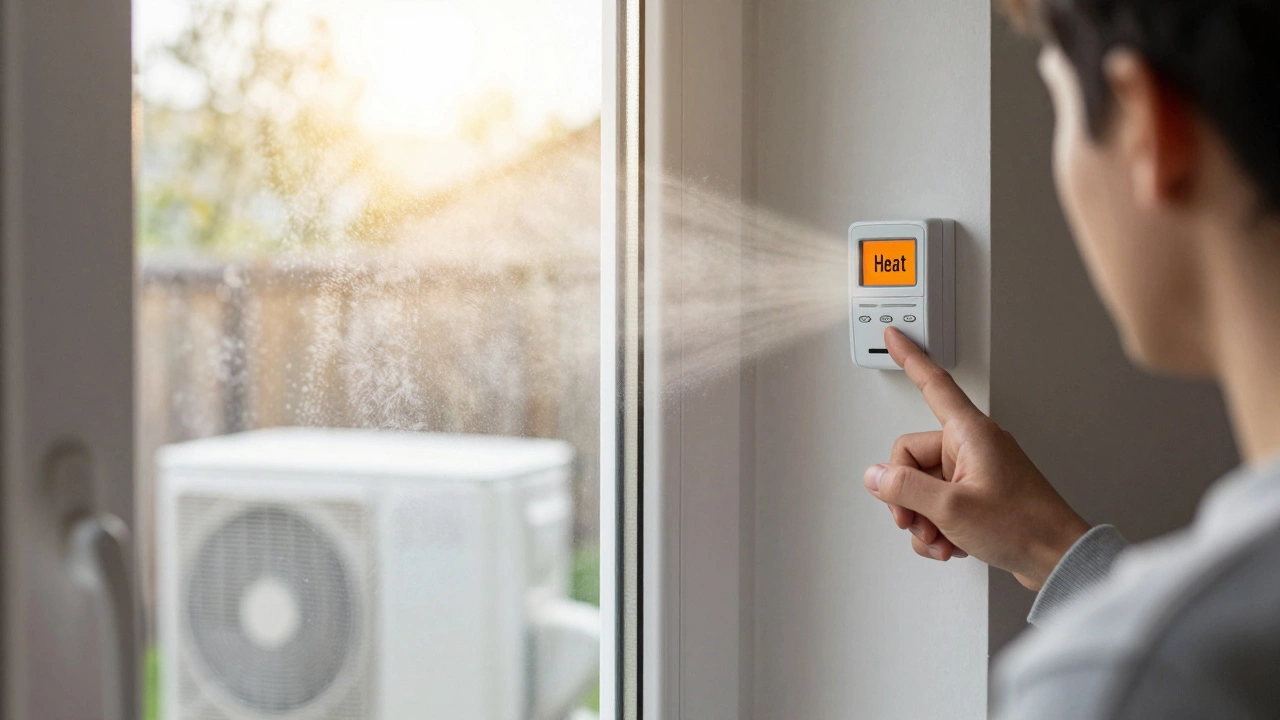
- 24 Oct 2025
- Gideon Thornton
- 0
Heat Pump Compressor Cost Calculator
Total Estimated Cost
When your heat pump stops heating, the culprit is often the Heat pump compressor the heart of the system that circulates refrigerant and creates the temperature lift needed for space heating. Knowing how much a replacement will set you back can stop a nasty surprise on the bill. Below we break down the price factors, typical UK ranges for 2025, hidden costs, and how to pick the right unit without blowing your budget.
Quick Takeaways
- New compressor prices in the UK run £800‑£2,200, depending on type and capacity.
- Installation, disposal, and refrigerant recharge add £300‑£700.
- Variable‑speed inverter units are pricier but save up to 30 % on running costs.
- Always ask for a written warranty and verify the installer is a certified HVAC technician.
- Budget‑friendly options exist for older systems, but matching capacity is crucial.
Understanding the Heat Pump Compressor
A heat pump works like a reversible refrigerator - it moves heat from outside air or the ground into your home. The heat pump an electrically‑driven system that extracts thermal energy from a source and transfers it indoors relies on the compressor to compress low‑pressure refrigerant gas, raising its temperature so it can release heat inside. When the compressor fails, you lose that lift, and the indoor coil gets cold.
Compressors come in several designs, each with its own efficiency profile and price tag. The three most common are:
- Scroll compressor A cylindrical spiral design that offers smooth, quiet operation and high efficiency
- Reciprocating compressor A piston‑driven unit, typically cheaper but noisier and less efficient
- Variable‑speed inverter compressor Uses a motor that can adjust its speed to match demand, delivering the best seasonal performance
Factors That Influence compressor price
Several variables push the cost up or down:
- Capacity (kW) - Bigger homes need higher‑capacity units, which use larger compressors and cost more.
- Technology type - Inverter compressors carry premium electronics; scroll compressors sit in the middle; reciprocating are the cheapest.
- Brand reputation - Established manufacturers (e.g., Mitsubishi ECO, Daikin) command higher prices but often offer longer warranties.
- Refrigerant type - Modern units use R‑410A or the newer low‑GWP R‑32; handling fees differ.
- Availability - Some models are stocked locally, while others need to be ordered from overseas, adding shipping and lead‑time costs.
Don’t forget the Warranty. A standard 2‑year parts warranty is typical, but many sellers offer 5‑year coverage for an extra £100‑£250.

Typical Price Ranges in the UK (2025)
| Compressor Type | Capacity (kW) | Unit Price (£) | Typical Efficiency (COP) |
|---|---|---|---|
| Scroll | 6‑12 | £1,200‑£1,800 | 3.5‑4.2 |
| Reciprocating | 4‑9 | £800‑£1,200 | 2.8‑3.3 |
| Variable‑speed inverter | 8‑15 | £1,800‑£2,200 | 4.0‑5.0 |
These figures cover the bare component. Add heat pump compressor cost for labour, disposal of the old unit, and refrigerant recharge and you’re looking at a total of £1,200‑£2,900.
Hidden Costs & Installation
Even if you snag a low‑priced compressor, the final bill can balloon. Common hidden costs include:
- Labour rates - Certified HVAC technicians in England charge £70‑£95 per hour. A typical replacement takes 3‑5 hours.
- Disposal fee - Environment Agency regulations require proper removal of the old compressor and oil, often £50‑£100.
- Refrigerant recharge - R‑410A must be recovered, filtered, and recharged, costing £150‑£250.
- System flushing - Older units may need a full line purge to avoid contamination, adding £120‑£200.
- Electrical upgrades - Some modern compressors need a dedicated 30 A circuit; new wiring can add £200‑£350.
Ask your installer for an itemised quote before work begins. Transparent pricing helps you compare offers fairly.

How to Choose the Right Compressor for Your Home
Follow this checklist to avoid overspending:
- Determine the required heating load (kW) using a professional heat‑loss calculation.
- Match the load to the compressor capacity range - never undersize.
- Prefer inverter or scroll types if you run the system frequently; the higher upfront cost pays off in lower electricity bills.
- Check the manufacturer’s warranty and whether it covers the compressor, motor, and refrigerant.
- Verify the installer’s certifications (e.g., City & Guilds 2391, BPEC registration).
- Get at least three written quotes and compare the total landed cost, not just the part price.
Frequently Asked Questions
How long should a heat pump compressor last?
A well‑maintained compressor typically lasts 12‑15 years. Regular servicing, especially cleaning the outdoor coil, can extend its life.
Can I replace the compressor myself?
In the UK, only a certified HVAC technician should handle refrigerant recovery and system charging. DIY attempts risk legal penalties and void warranties.
Is an inverter compressor worth the extra cost?
If you run the heat pump more than 2,000 hours a year, the variable‑speed inverter can cut electricity use by 20‑30 %, usually paying for itself in 5‑7 years.
What refrigerant does a new compressor use?
Most 2025 models use R‑410A or the lower‑global‑warming‑potential R‑32. The exact type is listed in the product datasheet.
Do I need a permit for compressor replacement?
In England, a building permit isn’t required, but the installer must follow Building Regulations Part L for energy efficiency and register the work with a Gas Safe or BPEC‑approved scheme.
Next Steps
Now you know the price landscape, it’s time to act. Start by contacting two local, BPEC‑registered HVAC firms for a heat‑loss assessment and a written quote that breaks down part, labour, and refrigerant costs. Compare the total landed price, not just the compressor tag, and ask about warranty coverage. With a clear cost picture, you can replace the compressor confidently and keep your home warm without breaking the bank.



